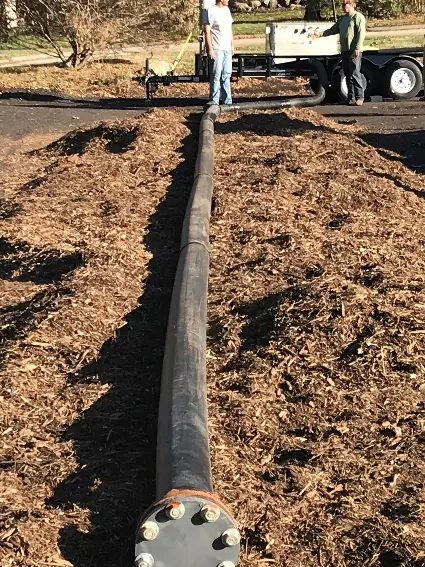

Stonington, Connecticut
Background

The Southeastern Connecticut Regional Resource Recovery Authority (SCRRRA) selected SCS to conduct a compost pilot test at the Stonington transfer station to evaluate the receipt and composting of food scraps using covered aerated static pile (ASP) technology. SCS’ services include design, permitting, construction, operations, and other related services.
Challenge
SCRRRA comprises 12 towns in southeastern Connecticut and was created to implement long-term municipal solid waste management solutions. About one-third of the municipal solid waste stream consists of food scraps, yard waste, and other organic materials that can be composted instead of disposed of at a waste-to-energy facility. The State, through the Connecticut Coalition for Sustainable Materials Management, is actively promoting the development of affordable organics diversion infrastructure. At the same time, the Connecticut Department of Energy and Environmental Protection required a permit application to allow the proposed test.
SCRRRA staff has attended compost training sessions and toured existing compost facilities. SCRRRA wanted to conduct a pilot test to assess proof of concept, technically and economically, before implementing a full-scale, permanent composting operation.
Outcomes and Benefits
SCS provided an SG Mobile™ System, using the GORE® Cover System, to conduct the pilot test. We processed two different batches of food scraps over four months to gather useful data on the composting process, composting costs, and product quality. Each batch included 25 or 50 wet tons of food scraps and about 200 cubic yards of wood chips. We collected and analyzed feedstock and compost samples and prepared a test report to assist SCRRRA assess ASP composting.
Additional Resources